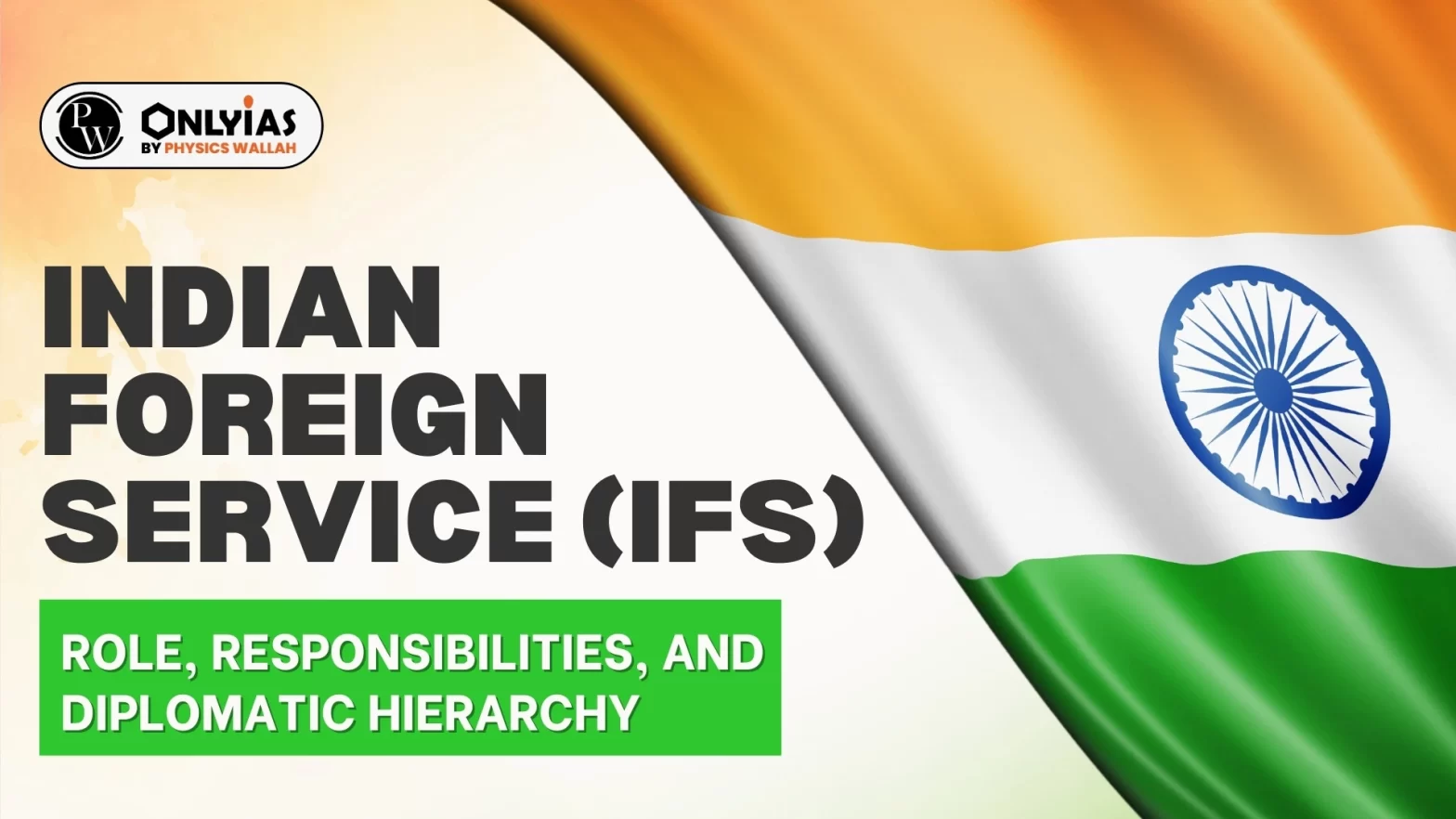Exploring the Indian Foreign Service (IFS) roles, ranks, and global impact. Learn about IFS officers' diplomatic journey and their pivotal role in shaping India's foreign policy and international relations.

The Indian Foreign Service (IFS) stands as a distinguished and pivotal arm of the civil services in India, dedicated to steering the nation’s diplomatic engagements and safeguarding its interests on the global stage. Established with the profound understanding that a nation’s external relations are fundamental to its progress, the Indian Foreign Service as the vanguard of India’s international outreach, wielding diplomacy as a potent instrument for shaping alliances, fostering cooperation, and addressing the multifaceted challenges that characterize the contemporary world.
| Training Institute | Description of Indian Foreign Service (IFS) |
| Lal Bahadur Shastri National Academy of Administration, Mussoorie |
|
| Foreign Service Institute in New Delhi |
|
| Compulsory foreign language training |
|
| Junior Time Scale (JTS):
|
|
| Senior Time Scale (STS):
|
|
| Junior Administrative Grade (JAG):
|
|
| Selection Grade (SAG):
|
|
| Senior Administrative Grade (Apex Scale):
|
|
| Ambassador/ High Commissioner:
|
|
| Additional Secretary:
|
|
| Special Secretary: |
|
| Secretary (Foreign Secretary):
|
|

In essence, Indian Foreign Service officers are versatile diplomats navigating the complexities of international relations. They contribute to India’s global standing through strategic engagement, effective representation, and the advancement of national interests.
| Must Read | |
| NCERT Notes For UPSC | UPSC Daily Current Affairs |
| UPSC Blogs | UPSC Daily Editorials |
| Daily Current Affairs Quiz | Daily Main Answer Writing |
| UPSC Mains Previous Year Papers | UPSC Test Series 2024 |
The IFS is a central civil service in India with a primary responsibility for handling the nation's diplomatic and foreign affairs.
Aspiring candidates can join the IFS by successfully clearing the Civil Services Examination conducted by the Union Public Service Commission (UPSC).
Candidates must be Indian citizens, hold a bachelor's degree, and meet age requirements, with specific educational qualifications varying.
IFS officers represent India in international forums, negotiate treaties, promote trade and cultural relations, and protect Indian interests abroad.
While officers can express preferences, the Ministry of External Affairs ultimately decides on postings based on the needs of the service.
Yes, proficiency in at least one foreign language is mandatory for Indian Foreign Service officers, and they undergo language training as part of their preparation.
<div class="new-fform">
</div>